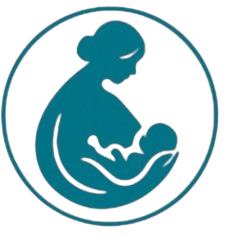Urinary tract problems in children affect the kidneys, ureters, bladder, and urethra. These conditions may be congenital (present at birth) or acquired due to infections, obstructions, or functional abnormalities. Early diagnosis and treatment are crucial to prevent kidney damage and long-term complications.
1. Common Urinary Tract Problems in Children
A. Congenital (Birth) Defects of the Urinary Tract
- Vesicoureteral Reflux (VUR)
- Cause: Urine flows backward from the bladder into the ureters and kidneys.
- Symptoms: Recurrent urinary tract infections (UTIs), bedwetting, kidney damage in severe cases.
- Treatment:
- Mild cases: May resolve on their own.
- Severe cases: Endoscopic injections or surgery to prevent reflux.
- Posterior Urethral Valves (PUV) (Only in Boys)
- Cause: Abnormal membranes in the urethra block urine flow.
- Symptoms: Weak urine stream, urinary retention, kidney swelling (hydronephrosis).
- Treatment: Endoscopic valve removal (cystoscopy) to restore normal urine flow.
- Pelvi-Ureteric Junction (PUJ) Obstruction
- Cause: Blockage where the kidney meets the ureter.
- Symptoms: Abdominal pain, vomiting, urinary infections.
- Treatment: Surgery (pyeloplasty) to remove the blockage and restore urine flow.
- Duplicated Ureters
- Cause: A child has two ureters instead of one draining a kidney, which may cause reflux or obstruction.
- Symptoms: Frequent UTIs, incontinence.
- Treatment: Surgery if it causes problems.
B. Acquired Urinary Tract Conditions
- Urinary Tract Infections (UTIs)
- Cause: Bacterial infection in the bladder, urethra, or kidneys.
- Symptoms: Fever, pain while urinating, frequent urination, cloudy or foul-smelling urine.
- Treatment: Antibiotics and increased fluid intake.
- Kidney Stones (Nephrolithiasis)
- Cause: Mineral buildup in the kidneys, often due to dehydration or metabolic disorders.
- Symptoms: Severe side pain, blood in urine, vomiting.
- Treatment:
- Small stones: Hydration and pain management.
- Large stones: Lithotripsy (shockwave treatment) or surgical removal.
- Bladder Dysfunction & Bedwetting (Enuresis)
- Types:
- Primary nocturnal enuresis – Bedwetting since early childhood.
- Secondary enuresis – Bedwetting after being dry for months.
- Causes: Delayed bladder maturity, deep sleep patterns, stress, or infections.
- Treatment:
- Behavioral training (timed voiding).
- Medications like desmopressin (for night bedwetting) if necessary.
- Types:
2. Diagnostic Tests for Urinary Tract Problems
- Urine Test & Urine Culture – Checks for infections.
- Ultrasound (USG KUB) – Detects structural abnormalities like kidney swelling.
- Voiding Cystourethrogram (VCUG) – X-ray test to check for reflux of urine into the kidneys.
- Renal Scan (DMSA/MCU) – Evaluates kidney function and obstruction.
- Urodynamic Testing – Assesses bladder function in children with urination difficulties.
3. Treatment Approaches
A. Medications
- Antibiotics – For UTIs and kidney infections.
- Desmopressin – Helps control bedwetting.
- Alpha-blockers – Used in PUV cases to relax the bladder outlet.
B. Minimally Invasive Procedures
- Endoscopic Injection for VUR – A gel is injected to prevent reflux.
- Cystoscopy for PUV – A camera-guided procedure removes urethral blockages.
C. Surgical Interventions
- Pyeloplasty (For PUJ Obstruction) – Removes blockages in the kidney-ureter junction.
- Reimplantation Surgery (For Severe VUR) – Ureter is repositioned to prevent backflow.
- Bladder Augmentation (For Neurogenic Bladder) – Expands bladder size using intestinal tissue.
4. Preventing Urinary Tract Issues in Children
- Encourage hydration (plenty of water).
- Promote regular toilet habits (avoid holding urine for long).
- Good hygiene – Proper wiping direction (front to back for girls).
- Treat underlying constipation, as it can affect bladder function.


